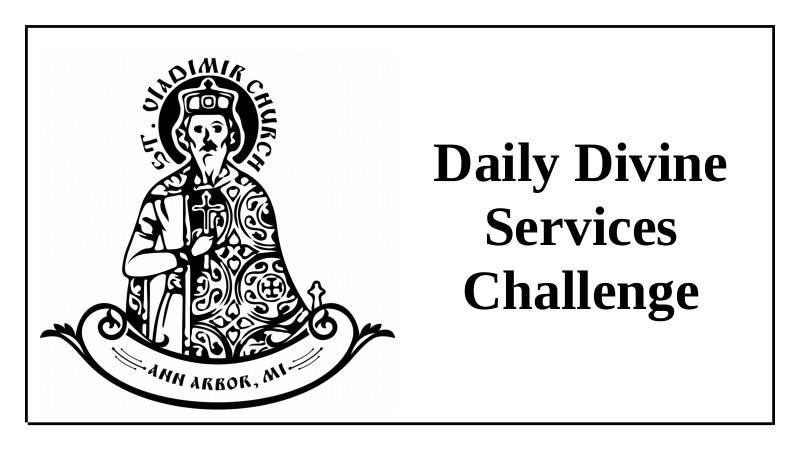
His Eminence Archbishop Peter has challenged our parish to stive to get to the point where we can serve every Divine Service of the daily service cycle (9 distinct services) on a daily basis. This is a good challenge for us! But we have much work to do to get to this goal: to serve every divine service every day! We need more clergy and we need more singers! If you would like to help us get to this laudable goal please contact Fr. Gregory!
Our present SET schedule (see the FULL SCHEDULE OF DIVINE SERVICES here) is:
Saturday 6:00 p.m.
Sunday 10:00 a.m.
But why should we care? Isn't it good enough to just have Sunday morning services?
When the Divine Services are held in our parish church our ENTIRE pairsh family benefits - whether all are present or not. You should try to be present! If you can't, you should try to listen on the Live Stream. But even if you can't participate actively in any way YOU benefit spiritually when the services are held in our parish church. Don't believe us? Read what the holy fathers have to say about this below!
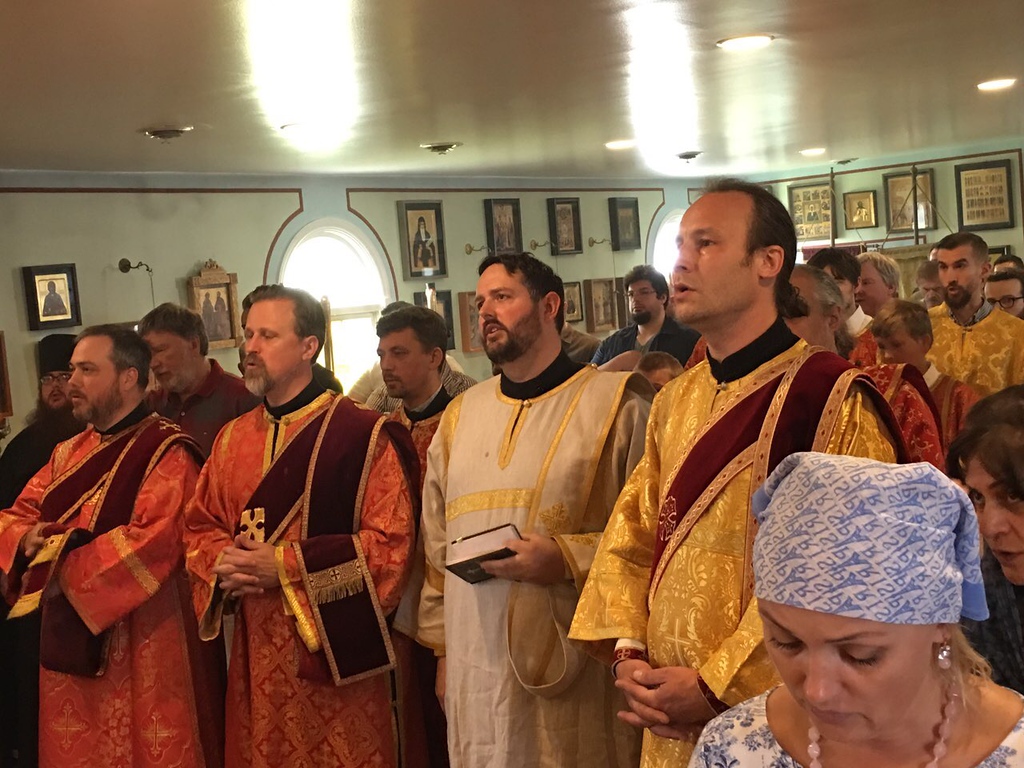
The right confession of dogmas should be combined with righteousness of life and deeds so that we do not achieve our salvation only by halves. Nothing can so facilitate righteousness of conduct and purity of life as being here, in church, and sincere attentiveness. As the body needs food, so the soul needs the study of divine Scriptures, for "man shall not live by bread alone, but by every word that proceedeth out of the mouth of God" (Matt. 4:4). For this reason those who do not participate in this meal (liturgy) usually suffer hunger. Hear how God threatens such hunger and places it alongside punishment and torture: "Behold, the days come, saith the Lord God, that I will send forth a famine in the land, not a famine of bread, nor a thirst for water, but a famine of hearing the word of the Lord..." (Amos 8:11). Is it not madness to do everything and take all measures to avoid bodily hunger but willingly to incur spiritual hunger? No, I beg and entreat you, let us not be so badly disposed toward ourselves... (St. John Chrysostom)
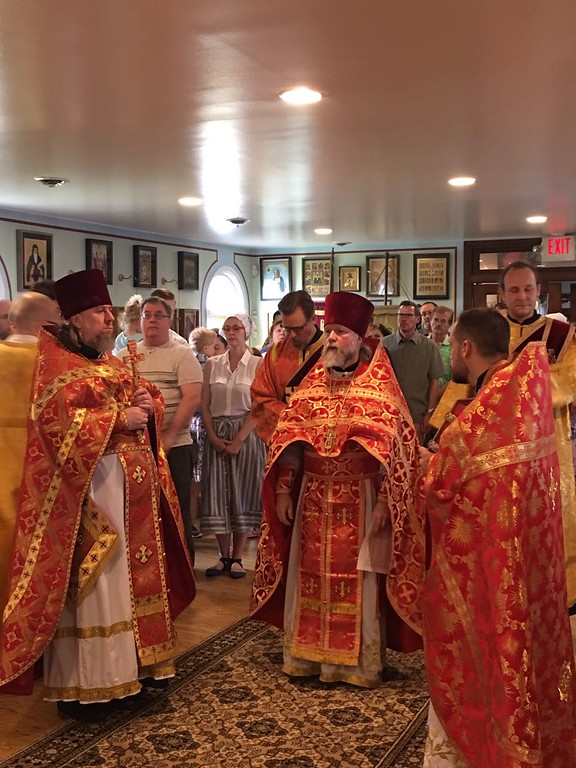
To be here in church is the source of all blessings. When they leave here, it seems that a husband is more respectful to his wife and a wife is more kind to her husband, since it is not the physical beauty of the body that makes a wife loving, but the virtue of the soul, not cosmetics and beauty aids, not gold and rich clothing, but chastity, meekness, and constant fear of God. This spiritual beauty nowhere develops to such an extent as in this wonderful and divine place (church), where the apostles and prophets wash away, reform, and cleanse old sin and bring forth the brightness of youth; where they extinguish every stain, every blemish, every defilement of our soul .... Let us try, husbands and wives, to rejoice in our inner beauty. (St. John Chrysostom)
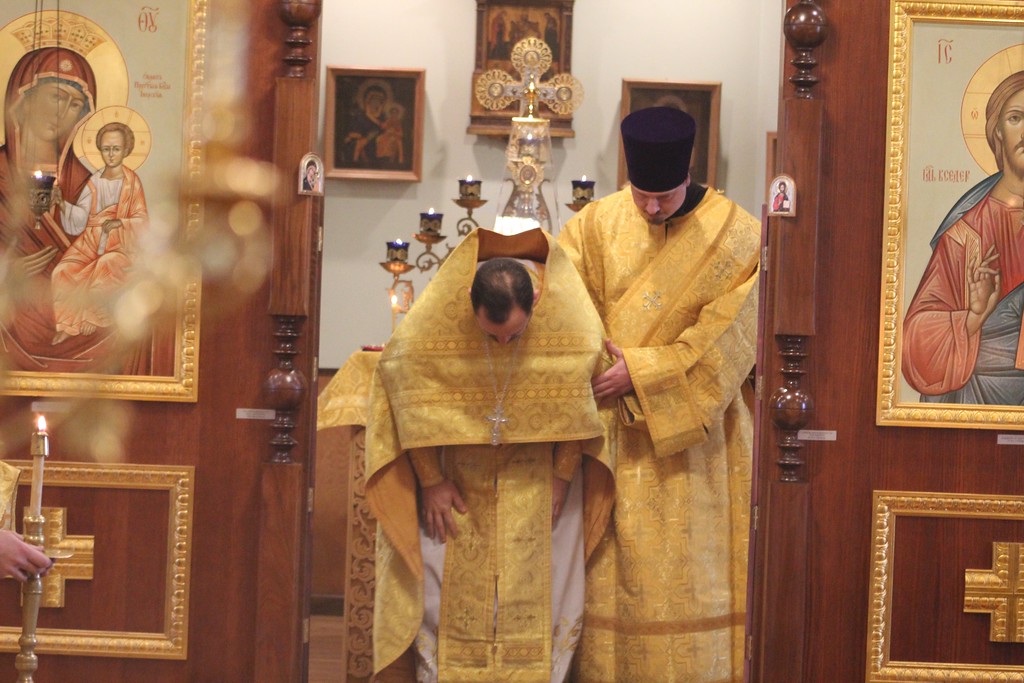
The Church and its divine services are an embodiment and realization of everything in Christianity. Here, in words and actions, are told the entire economy of our salvation, all of Sacred and Church history, all the goodness, wisdom, faithfulness and immutability of God in His deeds and promises, His truth, holiness and eternal might. Here we encounter a wonderful harmony in everything and an amazing logic both in the whole and in the parts. It is the divine wisdom, accessible to simple, loving hearts. (St. John of Kronstadt)
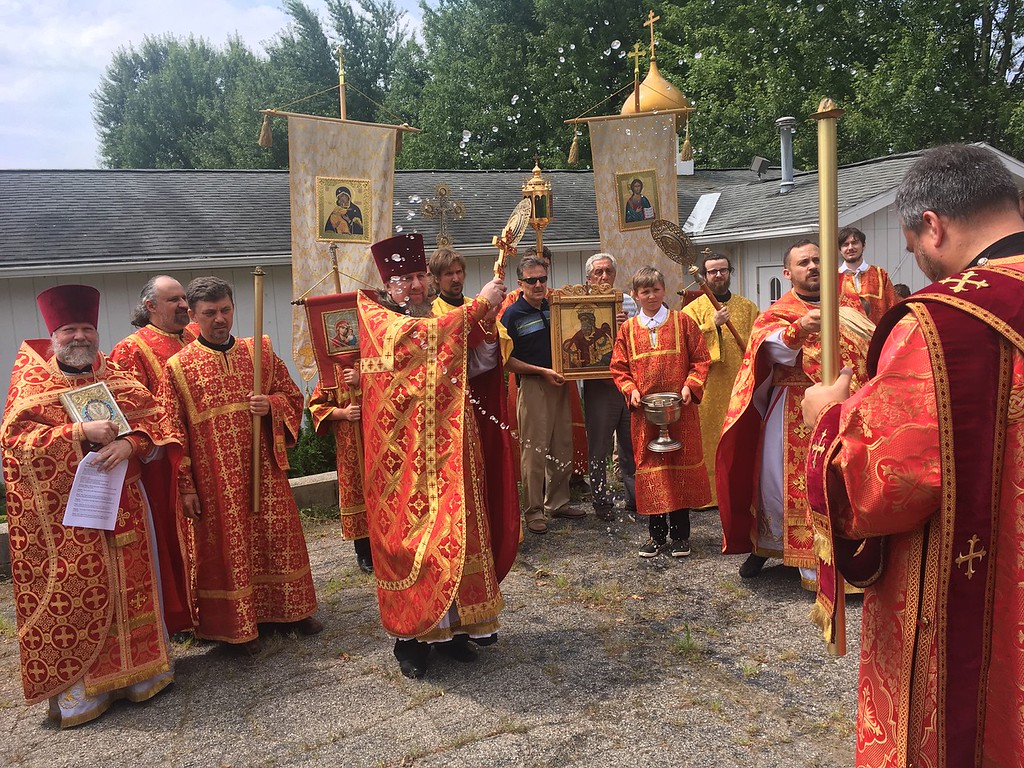
When you hear the chants in Church, you become more and more convinced that they are truly rich in a treasure of ideas, and are greatly important for a truly Orthodox understanding of life today. Our dogmatics courses taught in the theological seminaries and academies are in this respect on an immeasurably lower level than that theology taught to the faithful by our readers and chanters from the church kliros. (Hieromartyr Hilarion (Troitsky))

All of our liturgical hymns are instructive, profound and sublime. They contain the whole of our theology and moral teaching, give us Christian consolation and instill in us a fear of the Judgment. He who listens to them attentively has no need of other books on the Faith. (St. Theophan the Recluse)
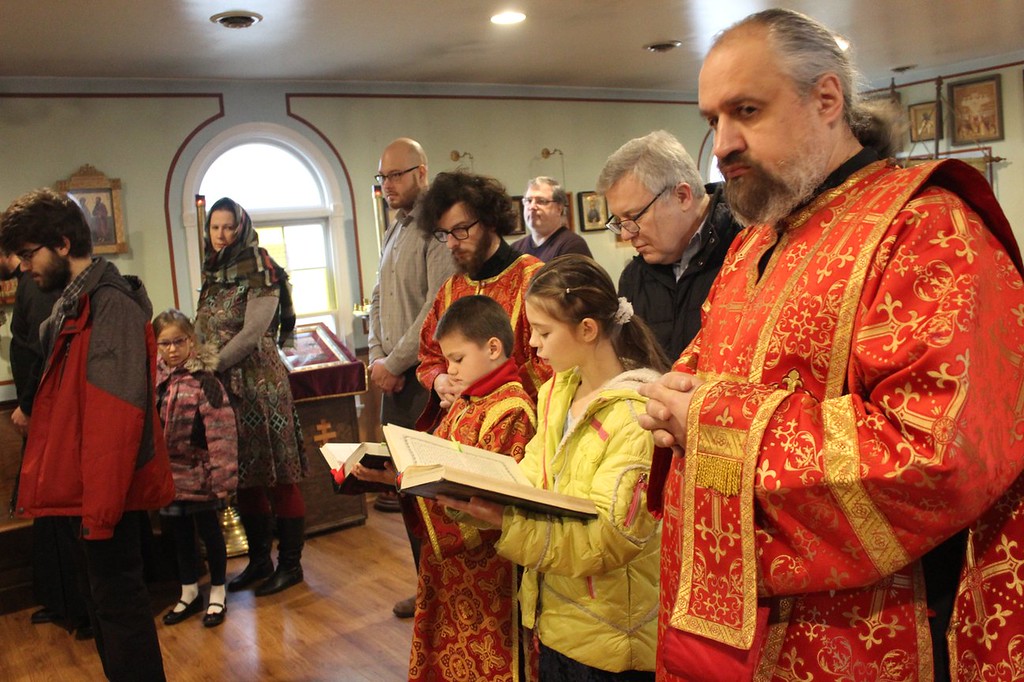
The Divine Services in their composition contain all the fullness of the dogmatic teaching of the Church and set forth the path to salvation. They present invaluable spiritual wealth. The more fully and precisely they are fulfilled, the more benefit the participants receive from them. Those who perform them carelessly and who shorten them by their laziness rob their flock, depriving them of their very daily bread, stealing from them a most valuable treasure. The shortening of the services which comes about through lack of strength must be done wisely and performed circumspectly in order not to touch that which should not be tampered with. (St. John of Shanghai & San Francisco)
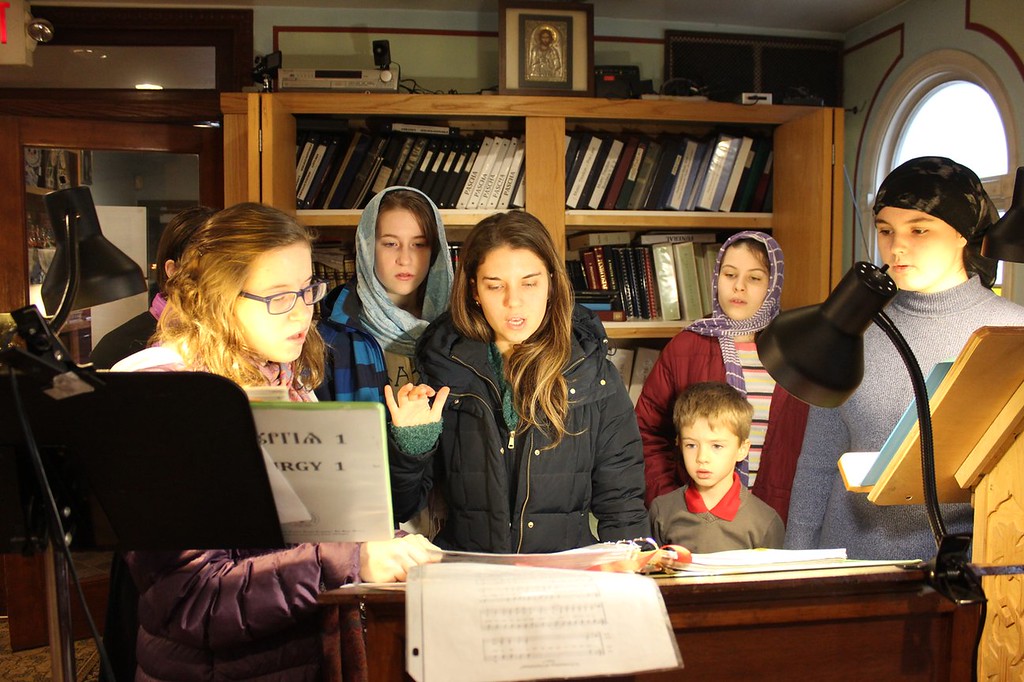
Orthodox divine services are a priceless treasure that we must carefully guard. Similar services were once celebrated in other Christian communities, but over the centuries they were lost as a result of both liturgical and theological “reforms”. (Met. Hilarion (Alfeyev))
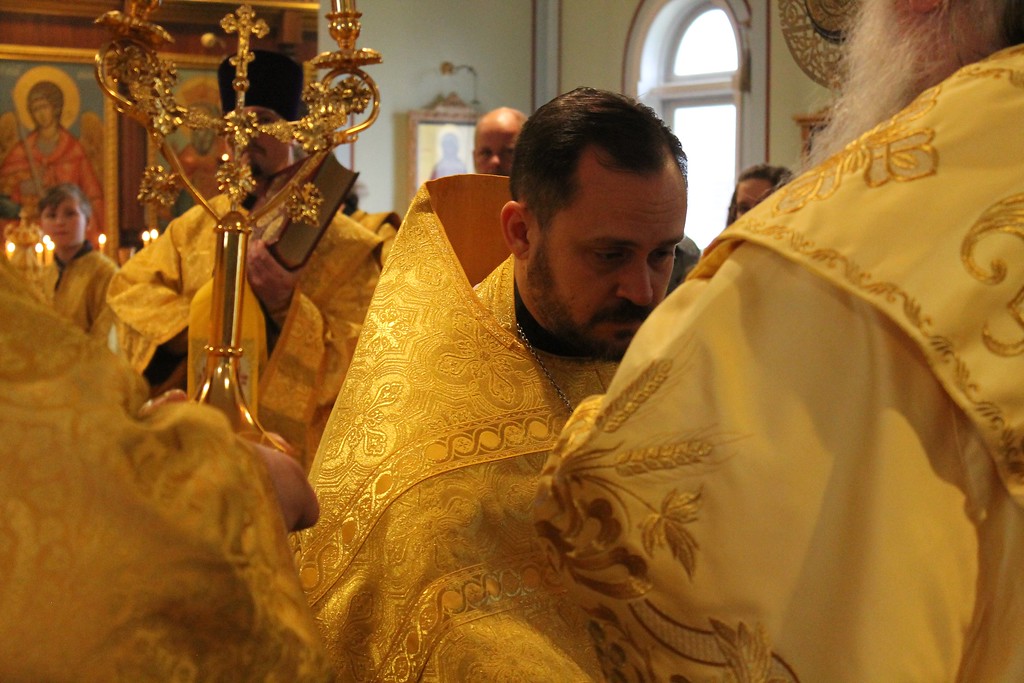
...if there are differences in the understanding of a dogma between a certain theological authority and liturgical texts, I would be inclined to give preference to the latter. And if a textbook of dogmatic theology contains views different from those found in liturgical texts, it is the textbook, not the liturgical texts, that need correction. (Met. Hilarion (Alfeyev))

 Search
Search

